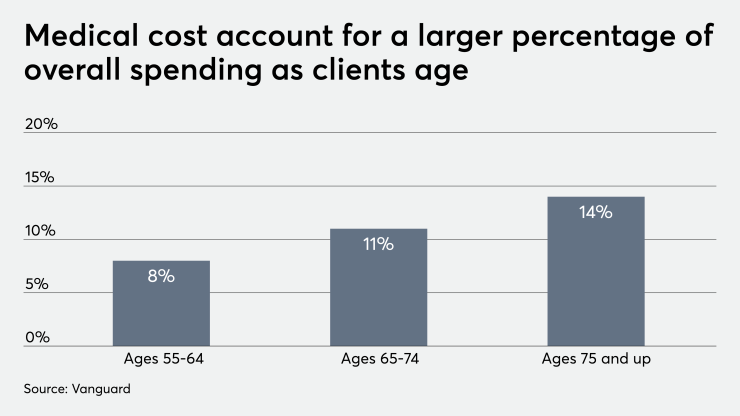Welcome to Retirement Scan, our daily roundup of retirement news your clients may be talking about.
Seniors are advised to consider year-end financial moves that will reduce their taxable income, as this will also decrease the odds of incurring the Medicare surcharge next year, a Forbes contributor writes. To do this, retirees are advised to focus on their RMDs, look for strategies to maximize their tax-free income and use their HSA to cover their Medicare premiums. Seniors who are still working can also reduce their income by contributing to their employer-sponsored retirement plan.

Doing a Roth conversion can be a smart move for clients who want to boost their after-tax income in retirement, as the account offers tax-free distributions and is not subject to RMD rules, according to this CNBC article. Although the converted amount will be subject to income taxes, the tax liability will be lower than when they leave the money in traditional retirement accounts because of the tax cuts under the new tax law. Moreover, “it’s more likely that taxes will rise in the future, not go down,” says a CPA.
Americans would need to save $610,000, on average, to secure their retirement, a study by Provision Living has found in this article from Motley Fool. The figure is not far from the recommended amount. According to experts, seniors should end up with at least $631,790 in savings in retirement, as they will need 10 times their ending salary to have a comfortable life. The average salary of American workers last year was $63,179.
More than half of them track the industry’s top-performing category.
Seniors who want to file for Social Security while working are advised to determine their full retirement age, according to this article in USA Today. That's because clients will face no earning limits after their FRA and Social Security will not withhold a percentage of their benefits. However, a portion of their retirement benefits might be taxed if their provisional income — all non-Social Security income plus interest and 50% of the retirement benefit — will exceed a certain threshold.






